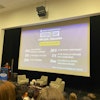 Dr. Cara DiMarco
Dr. Cara DiMarco
Her passing shocked the community she had built at Lane Community College in Eugene, Oregon. DiMarco had been instrumental in the development of Lane's Women in Transition (WIT) program since she started working there in 1997. Before she retired in 2019, she had touched the lives of more than 7,000 WIT students and their families, putting them on paths to success they might otherwise have never envisioned for themselves.
Transitions programs originated in the late 1970s to target displaced homemakers. Through DiMarco’s leadership at Lane, she opened up the program to all kinds of women in need, creating safe spaces for those with histories of abuse, who lost their jobs, who were first-generation or non-traditional students, who were looking to find themselves and their purpose.
As funding for displaced homemaker programs began to ebb, and many programs decoupled from their parent institutions or closed their doors altogether, DiMarco’s leadership kept the WIT program alive and embedded at Lane.
Finding transition programs connected with a community college these days is rare, but some do exist. As more women and more women of color are displaced from the workforce, experts who work in these programs say they could play a vital role bringing women back to the classroom and back to the workforce.
The experience of Conley Phelps is a testament to the benefits of a transition program. She is currently a student at Lane, though she says she never saw herself going to college. Phelps was in one of the last classes to be taught by DiMarco before she retired.
Phelps came to WIT after losing a long-time job sent her adrift. She had wandered to and from various career assistance programs before she found herself at Lane.





















